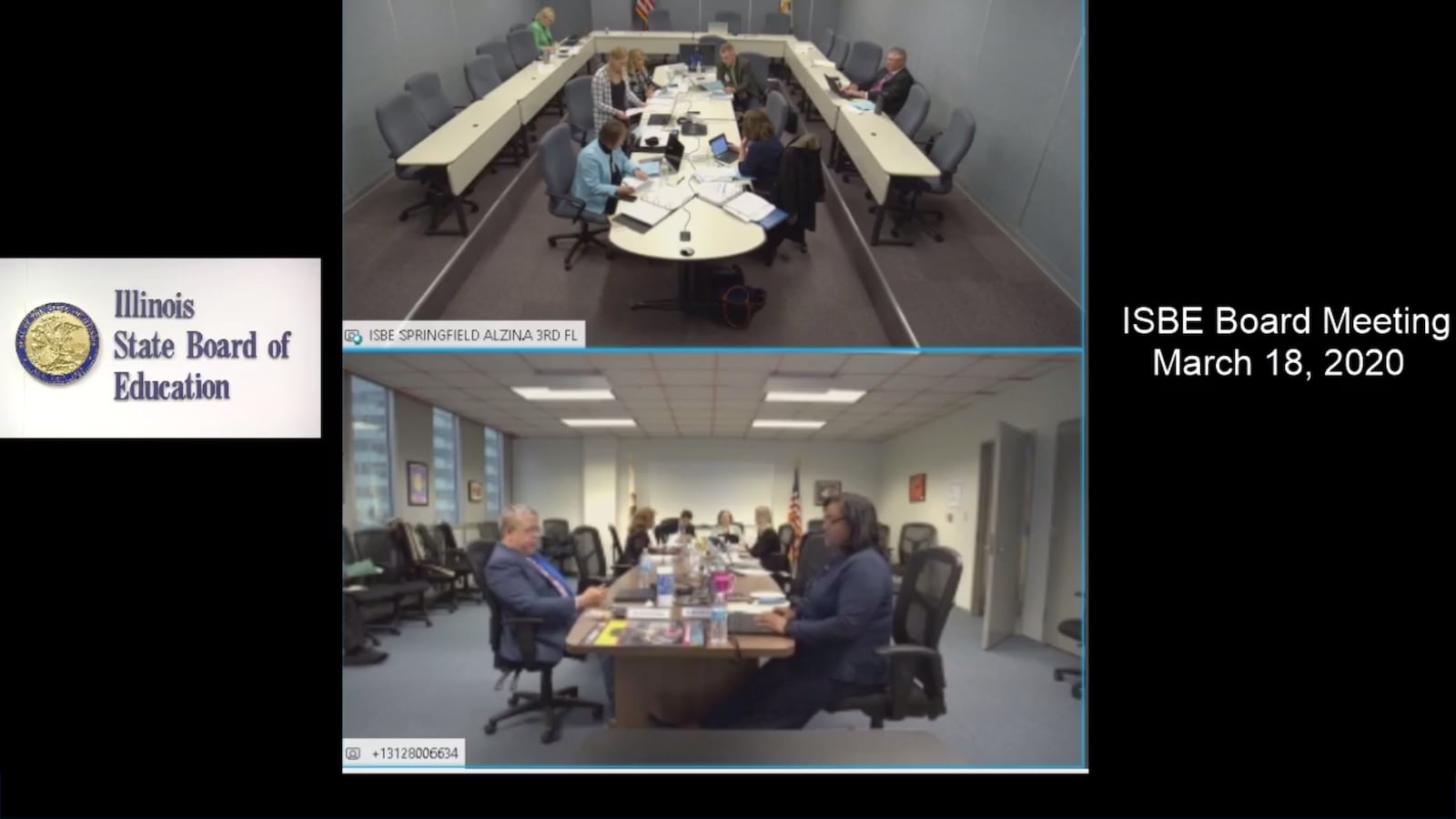Even as districts around the state rush to figure out distance learning plans for students in the wake of the coronavirus school shutdowns, the state school board voted Wednesday to close Chicago’s only virtual charter school for failure to improve its academics.
It was the first use of the Illinois Board of Education’s newly restored, but controversial, authority to decide whether or not to save charter schools that districts want to close.
At its monthly board meeting, the state board voted not to overturn Chicago Public Schools’ decisions to close both Chicago Virtual Charter School, the city’s only virtual charter, and Frazier Preparatory Academy, a K-8 school in North Lawndale.
But the votes, while unanimous, were not easy ones. Some board members questioned whether it was appropriate for the state board to make a decision on closing schools if the board didn’t play a role in opening or supporting them.
“I’m just in general questioning the whole concept of continuing to open new schools and expecting them to perform at a certain level… and when they don’t the families and educators have their lives disrupted,” board member Cristina Pacione–Zayas said, via a remote cal into the meeting. “I really have fundamental issues on the outset of how all this is done.”
Until recently, charter schools that were at risk of closure could appeal to the Illinois State Charter School Commission, which for eight years had the last word on the fate of charter schools.
But last summer, Gov. J.B. Pritzker signed a bill to abolish the commission and to transfer charter school appeals to the state board.
The state board’s new power reshapes the education landscape to a less friendly environment for charters rejected by their home district. Unlike the charter commission, whose members were mostly appointed by previous governor Bruce Rauner, the state board is appointed by the current governor, a critic of charter schools.
Administrators and parents from Chicago Virtual Charter pushed hard for their school when calling into public comment on Wednesday’s meeting, particularly in light of the need for virtual schooling since the coronavirus spread.
But a representative from Chicago Public Schools, also calling into the meeting, said that both Chicago Virtual and Frazier had failed to improve their academic standards over three years, and the district itself offered strong alternative school options.
The board accepted the ruling of its hearing officer, who had held public hearings in Chicago and then recommended closing both schools.
“I have to defer to the combination of Chicago Public Schools and the hearing officer, so that is where I am,” board President Darren Reisberg said.
But Pacione-Zayas expressed reservations. She noted that after the 2013 mass closures of public schools in Chicago, most students didn’t end up in schools that were substantially better performing than those that closed. “If I’m looking at what the evidence bears out, I think it’s a lot more complicated than what we sometimes think it is going into it,” she said.
Frazier and Chicago Virtual — both with physically shuttered buildings as part of the statewide school shutdown — permanently will shut their doors at the end of this school year, and Chicago Public Schools will be obligated to help their students find placements in new schools.
Board members voiced concern about virtual school students finding flexible schooling alternatives. Jennifer Saba, who heads a department that would oversee any charters taken over by the state board, said Chicago Public Schools would work with families on finding hybrid options.
Wednesday’s meeting was only the first step in the board’s move to take over the commission’s work. On July 1, it will also take over as the charter holder for 11 schools currently overseen by the state charter commission.
Samantha Smylie contributed reporting.

